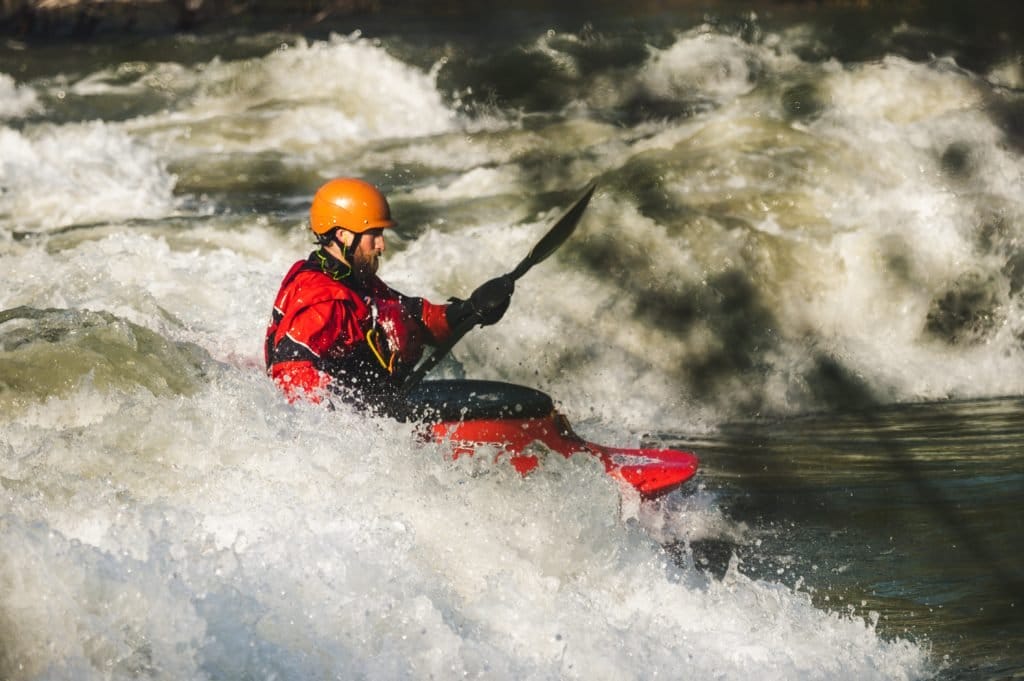Travel isn’t one-size-fits-all. From luxury resorts to backpacking adventures, the way we explore the world is deeply personal. Whether your ideal trip involves lounging on a pristine beach, trekking through remote wilderness, or immersing yourself in bustling cityscapes, understanding different travel styles is key to planning experiences you’ll truly enjoy. This guide will help you identify the approach to travel that best matches your interests, comfort level, and aspirations.
Solo Travel
Traveling solo can be an incredibly rewarding and transformative experience. It allows you to embark on an adventure tailored to your own desires, providing you with the freedom to explore the world at your own pace. Let’s delve into the experience of traveling solo, highlighting the benefits and considerations for those who prefer to wander off the beaten path.

The Benefits of Solo Travel
1. Freedom to Choose Your Own Path
When traveling solo, you have the ultimate flexibility to create your own itinerary. You are not bound to anyone else’s preferences or schedule, allowing you to explore destinations that truly resonate with you. Want to spend an extra day at that breathtaking mountain peak? Or perhaps immerse yourself in the vibrant culture of a bustling market? The choice is yours, and yours alone.
2. Self-Discovery and Personal Growth
Solo travel provides a unique opportunity for self-reflection and personal growth. Without the distractions of companionship, you are able to fully focus on your own thoughts and aspirations. As you navigate unfamiliar territories and overcome challenges independently, you will undoubtedly build confidence and resilience. Embrace the unknown, and you may discover aspects of yourself that were previously hidden.
3. Meeting New People and Making Lifelong Connections
Contrary to what some may believe, solo travel does not equate to loneliness. In fact, it often presents more opportunities for social interaction. When you travel alone, you become more approachable and open to meeting new people. Whether it’s striking up a conversation with a fellow traveler in a hostel lounge or befriending a local at a quaint café, the connections you forge during your solo adventures can be profound and enduring.
4. Flexibility to Indulge in Your Interests
Traveling with a group often involves compromises, with everyone’s interests and preferences taken into account. However, when you travel solo, you have the freedom to indulge in your own passions and interests without compromise. Whether you’re an avid photographer keen on capturing breathtaking landscapes or a food enthusiast eager to savor local culinary delights, you can immerse yourself in activities that truly ignite your soul.
Considerations for Solo Travelers
1. Safety First: Plan and Prepare
While solo travel is highly rewarding, it’s crucial to prioritize your safety. Before embarking on your adventures, thoroughly research your destination and familiarize yourself with any potential risks. Take necessary precautions such as registering with your country’s embassy, purchasing travel insurance, and sharing your itinerary with loved ones. It’s also important to be mindful of your surroundings, trust your instincts, and take extra care when venturing out alone, particularly at night.
2. Making Connections On the Road
Although solo travel can be an invigorating experience, it’s natural to crave human connection along the way. To combat feelings of isolation, consider staying in hostels or participating in group activities and tours. These environments provide opportunities to meet like-minded travelers and build a sense of community. Joining local events or activities, such as cooking classes or hiking groups, can also be a fantastic way to connect with both locals and fellow travelers.
3. Embracing Solo Time for Self-Care
While meeting new people and immersing yourself in new cultures is an exciting aspect of solo travel, it’s equally important to embrace solitude and take care of your well-being. Schedule some alone time to recharge and reflect. Explore a serene hiking trail, spend an afternoon with a good book in a tranquil café, or simply indulge in a spa day. Prioritizing self-care ensures that you maintain a healthy balance between adventure and relaxation during your solo journey.
Discover the best daypacks as reviewed by our readers
Group Travel
Traveling alone can be an incredible experience, but there’s something special about exploring the world with a group of like-minded individuals. Next, let’s delve into the advantages and potential drawbacks of group travel.

Advantages of Group Travel
1. Shared Experiences
One of the biggest advantages of group travel is the opportunity to share experiences with others. Whether it’s witnessing a breathtaking sunset, exploring a bustling city, or immersing yourself in a different culture, group travel allows you to create lasting memories together. These shared experiences often forge strong bonds and lifelong friendships.
2. Expert Guidance
Group travel often comes with the benefit of expert guidance. Professional tour guides or experienced group leaders can provide insights into the destination, ensuring you make the most of your trip. They possess in-depth knowledge about the local culture, history, and hidden gems that may not be easily accessible to solo travelers.
3. Safety in Numbers
Traveling in a group can provide an increased sense of safety. In unfamiliar environments, having companions by your side can alleviate any concerns and provide a layer of security. Additionally, group travel organizers typically prioritize safety measures, ensuring that you can relax and enjoy your journey with peace of mind.
4. Shared Costs
Group travel often offers cost-saving benefits. By pooling resources, group members can access discounted rates on accommodations, transportation, and activities. This allows you to maximize your travel budget and potentially afford experiences that may have been out of reach as a solo traveler.
5. Built-in Social Network
One of the highlights of group travel is the instant social network it provides. From day one, you’ll have the opportunity to connect and bond with fellow travelers who share your passion for exploration. Whether you’re exchanging stories over a communal dinner or engaging in group activities, the camaraderie of traveling together can enhance the overall experience.
Potential Drawbacks of Group Travel
While group travel offers numerous benefits, it’s important to consider potential drawbacks.
1. Lack of Flexibility
When traveling in a group, it’s inevitable that compromises will have to be made. The itinerary is often pre-determined, leaving limited room for spontaneous detours or individual preferences. If you value flexibility and the freedom to explore at your own pace, group travel may not be the ideal choice for you.
2. Group Dynamics
Traveling with a diverse group of individuals means that personalities, preferences, and expectations can sometimes clash. Conflicts may arise, requiring a level of patience and compromise. However, with open communication and a willingness to understand others, these challenges can often be resolved.
3. Less Privacy
Sharing accommodations with other group members means sacrificing some privacy. While this can be an opportunity to develop closer bonds with your fellow travelers, it’s essential to consider your personal space requirements and comfort levels before embarking on a group travel experience.
Adventure Travel
Adventure travel is an exhilarating way to explore the world, combining thrilling experiences with adrenaline-pumping activities that push your boundaries. Whether you’re an adrenaline junkie or simply seeking an exciting escape from your everyday routine, adventure travel is sure to provide you with unforgettable memories. Now, we will delve into the world of adventure travel, highlighting the destinations that cater to thrill-seekers and the experiences that await. Let’s get ready to embark on a thrilling journey!

Pros of Adventure Travel
1. Physical Fitness and Health Benefits
Adventure travel often involves activities like hiking, biking, kayaking, or climbing, which can improve physical fitness and overall health.
2. Cultural Immersion
Many adventure travels include opportunities to interact with local communities and cultures, offering a more authentic and enriching experience than typical tourist activities.
3. Mental Health Benefits
Being in nature and taking on new challenges can have a positive impact on mental health. Activities in natural settings are known to reduce stress, anxiety, and depression.
4. Learning Experiences
Adventure travel often involves learning new skills or enhancing existing ones, such as survival skills, navigation, or outdoor sports abilities.
5. Environmental Awareness
Adventure travel can foster a deeper appreciation for the environment and often involves eco-friendly practices and sustainability.
Cons of Adventure Travel
1. Risk of Injury
Physical activities involved in adventure travel can be risky, and there’s a higher chance of injury compared to more leisurely forms of travel.
2. Skill and Fitness Requirements
Some forms of adventure travel require a certain level of fitness or skill, which might not be suitable for everyone.
3. Cost
Depending on the destination and activities, adventure travel can be expensive. Specialized gear, guides, and insurance can add to the cost.
4. Accessibility
Adventure destinations may be remote and harder to reach, requiring more complex logistics and potentially more time.
5. Environmental Impact
While many adventure travel experiences aim to be sustainable, increased foot traffic in remote areas can lead to environmental degradation if not managed responsibly.
Destinations for Adventure Travel
When it comes to adventure travel, the world is your playground. There are countless destinations that offer unique experiences for thrill-seekers. Here are some top adventure travel destinations worth exploring:
1. New Zealand: The Land of Outdoor Adventure

Activities:
- Bungee jumping at the infamous Nevis Bungy, the highest bungee platform in New Zealand
- Hiking the spectacular Milford Track, known for its breathtaking alpine scenery
- Whitewater rafting through the challenging rapids of the Shotover River
- Ziplining across the treetops in Rotorua’s Redwood Forest
Benefits of choosing New Zealand:
- Variety of adventure activities catering to different adrenaline levels
- Stunning natural landscapes and diverse ecosystems
- Well-developed tourism infrastructure ensuring safety and convenience
2. Costa Rica: The Eco-Adventure Haven

Activities:
- Canopy tours gliding through the lush rainforests of Monteverde
- Surfing the world-class waves at Tamarindo Beach
- Exploring the active Arenal Volcano and relaxing in its natural hot springs
- Wildlife spotting and zip-lining through the captivating Manuel Antonio National Park
Benefits of choosing Costa Rica:
- Rich biodiversity and protected national parks
- Sustainable tourism practices promoting environmental conservation
- Accessibility to various adventure activities suitable for all ages and skill levels
Thrilling Experiences Await
Adventure travel offers a wide range of thrilling experiences that cater to every adventurer’s interests. Here are some popular activities you may encounter when venturing into the world of adventure travel:
Whitewater Rafting – Conquering the Rapids

Whitewater rafting combines the thrill of navigating fast-flowing rivers with the breathtaking beauty of natural landscapes. Whether you’re a beginner or an experienced rafter, the adrenaline rush is guaranteed. Key points to consider:
- Different difficulty levels range from calm, family-friendly rides to intense rapids for the more experienced.
- Popular destinations include the Grand Canyon in the United States, the Zambezi River in Africa, and the Futaleufú River in Chile.
Hiking and Trekking – Exploring Untouched Terrain

Hiking and trekking allow you to immerse yourself in untouched wilderness, exploring landscapes that few have set foot on. With each step, you’ll conquer nature’s challenges while embracing its beauty. Key points to consider:
- A variety of trails cater to different fitness levels, from leisurely walks to multi-day expeditions.
- Popular treks include the Inca Trail to Machu Picchu, the Appalachian Trail in the United States, and the Everest Base Camp Trek in Nepal.
Rock Climbing – Scaling New Heights

Rock climbing puts your physical and mental strength to the test as you conquer vertical cliffs and steep rock faces. It’s a sport that requires skill, focus, and determination. Key points to consider:
- Various types of rock climbing exist, including bouldering, sport climbing, and traditional climbing, each with its own challenges and equipment requirements.
- Iconic climbing destinations include Yosemite National Park in the United States, Mount Arapiles in Australia, and the Dolomites in Italy.
Prepare for Your Adventure
Before embarking on your adventure travel experience, it’s essential to make proper preparations. Here are some tips to ensure a smooth and enjoyable journey:
- Research and choose a reputable adventure travel operator with experienced guides and a strong safety record.
- Check visa requirements and ensure your passport is valid for the duration of your trip.
- Pack appropriate gear, including sturdy footwear, waterproof clothing, and any specialized equipment required for your chosen activities.
- Consider travel insurance that covers adventure activities and emergency medical expenses.
Remember, adventure travel provides the opportunity to challenge yourself, embrace the unknown, and create memories that will last a lifetime. So, get ready to step out of your comfort zone and embark on an unforgettable adventure!
Luxe Travel

Luxury travel, characterized by indulgent experiences, high-end accommodations, and exceptional service, is a popular choice for those seeking comfort and exclusivity. Like any travel style, luxury travel comes with its own set of pros and cons.
Benefits of Luxury Travel
1. Exceptional Comfort and Quality
Luxury travel typically offers the highest standards of comfort and quality in accommodations, transportation, and amenities, ensuring a highly comfortable and pampering experience.
2. Personalized Service
High-end travel often includes personalized services tailored to individual preferences, such as concierge services, private guides, and customized itineraries.
3. Exclusive Experiences
Luxury travel can provide access to exclusive experiences, private tours, and unique cultural encounters that might not be available to the general public.
4. Safety and Privacy
High-end travel tends to offer enhanced safety and privacy measures, which is particularly appealing to high-profile travelers.
5. Fine Dining and Culinary Experiences
Luxury travel often includes access to some of the world’s best restaurants and culinary experiences, with a focus on gourmet dining and exceptional service.
Disadvantages of Luxury Travel
1. High Cost
The most significant downside of luxury travel is its cost. The high price tag can make it inaccessible to many and can limit the duration or frequency of travel.
2. Environmental Impact
Luxury accommodations and activities can have a significant environmental footprint, although there is a growing trend towards sustainable luxury travel.
3. Less Adventure and Spontaneity
The well-planned nature of luxury travel can sometimes limit opportunities for spontaneous adventures or serendipitous experiences.
4. Exclusivity Can Lead to Isolation
The exclusivity of luxury travel might lead to isolation from the broader travel community, limiting opportunities to meet a diverse range of people.
Budget Travel

Budget travel, characterized by cost-saving strategies and economic choices, is a popular travel style for those looking to explore and experience new places without a hefty price tag. Like any travel style, budget travel comes with its own set of advantages and disadvantages.
Pros of Budget Travel
1. Affordability
The most apparent advantage of budget travel is its cost-effectiveness, allowing travelers to explore new places without spending a lot of money.
2. Longer and More Frequent Trips
Since you’re spending less per trip, you might afford longer stays or plan more frequent travels.
3. Authentic and Local Experiences
Budget travel often involves staying in hostels, using public transportation, and eating at local spots, leading to more authentic interactions with local cultures and people.
4. More Sustainable
Budget travel can be more sustainable, as it often involves lower carbon footprints compared to luxury travel (e.g., using public transport, staying in smaller, locally-owned accommodations).
Cons of Budget Travel
1. Comfort and Convenience
Budget travel often means less comfort, such as staying in shared rooms, using crowded public transport, or having limited amenities.
2. Time-Consuming
Finding the best deals and traveling via slower, cheaper means can be more time-consuming than direct or more expensive options.
3. Safety Concerns:
Cheaper accommodations and transport can sometimes mean compromising on safety and staying in less secure areas.
4. Physical Demands
Budget travel often requires carrying your own luggage for longer distances, walking more, or dealing with less comfortable sleeping arrangements, which can be physically demanding.
5. Health Considerations
Cheaper food options might not always be the healthiest, and constant budget travel can take a toll on your physical well-being.
Slow/Nomadic Travel

Slow and nomadic travel is a style of travel that emphasizes extended stays in destinations, allowing travelers to immerse themselves in local cultures, lifestyles, and communities. This approach contrasts with more conventional forms of tourism, which often involve shorter, more destination-packed itineraries.
Advantages of Slow Travel
1. Cultural Immersion
Slow travel allows for a deeper understanding of the cultures, traditions, and daily lives of local people, leading to a more authentic and enriching experience.
2. Cost-Effectiveness
Staying in one place for a longer period can be more economical, as travelers can avail of long-term accommodation deals, local food options, and cheaper transportation modes.
3. Environmental Benefits
Slow travel often involves less frequent use of planes and other high-emission transport modes, reducing the traveler’s carbon footprint.
4. Community Engagement
Longer stays allow travelers to form genuine connections with local communities, which can lead to more meaningful and memorable experiences.
Disadvantages of Slow Travel
1. Visa and Legal Challenges
Navigating visa requirements and staying legally compliant can be complex and stressful, especially for long-term travel.
2. Income Insecurity
For those who rely on freelance or remote work, income can be unpredictable and may affect travel plans.
3. Healthcare Concerns
Access to healthcare and managing health insurance across different countries can be challenging.
4. Practical Challenges
Issues like mail forwarding, maintaining a permanent address for official documents, and managing finances across different accounts can be complicated and confusing.
Other Travel Styles That Are Not for Leisure
Not all travel is for relaxing and enjoyment. So we just want to highlight other travel styles you may encounter.
- Funerals and repatriation
- Business
- Event
- Press/fams
- Religious and pilgrimage
- Educational
- Medical
- Volunteer
Take our quiz to discover your ideal travel style
So there you have it! By now, you should have a good grasp on the various travel styles that exist. Armed with this knowledge, you can confidently plan your next adventure.






I love adventure travel! Have you considered writing an article about specific adventure destinations and activities?
Absolutely! I will definitely consider writing an article about specific adventure destinations and activities. Thank you for the suggestion! If you have any particular destinations or activities in mind, feel free to share them.
Our sister website, TravelwithDayvee.com has more information about destinations and activities. We focus only on how to help you pack for your trips better.
Solo travel can be an amazing experience! Here are a few tips for first-time solo travelers: 1) Research your destination thoroughly to understand its culture, customs, and safety precautions. 2) Start with a shorter trip to build confidence. 3) Stay connected with loved ones through regular check-ins. Don’t hesitate to ask if you have any specific questions!
This article was helpful! Can you recommend any books or blogs that provide further information on different travel styles?
Glad you found the article helpful! Here are a few book recommendations: 1) ‘The Solo Travel Handbook’ by Lonely Planet. 2) ‘Group Travel Made Simple’ by The Travel Sisters. 3) ‘Adventure Travel: The Ultimate Guide’ by National Geographic. As for blogs, ‘Nomadic Matt’ and ‘Expert Vagabond’ are great resources. Happy reading!
I have always wanted to try solo travel but I’m a bit nervous about it. Do you have any tips for first-time solo travelers?